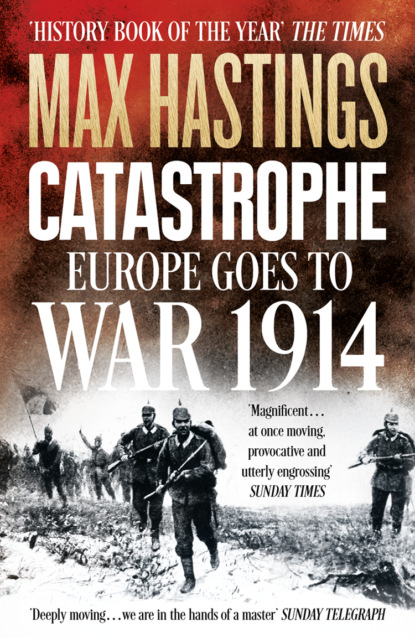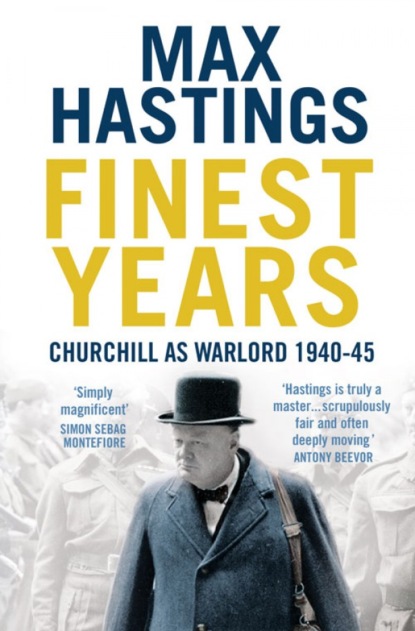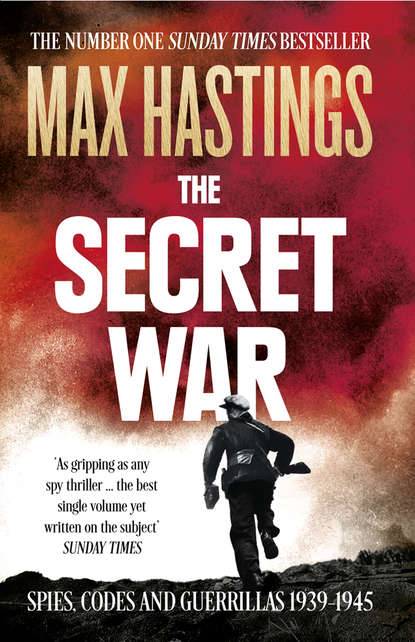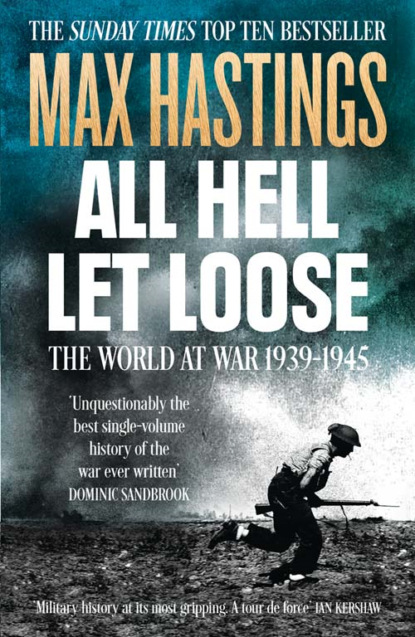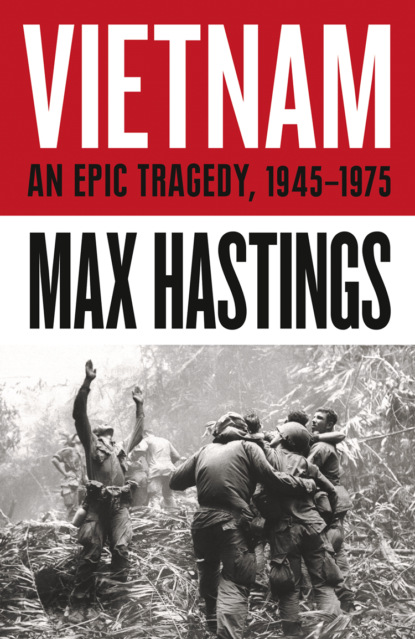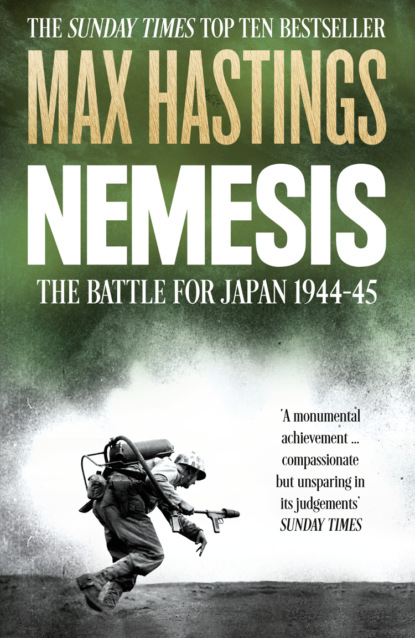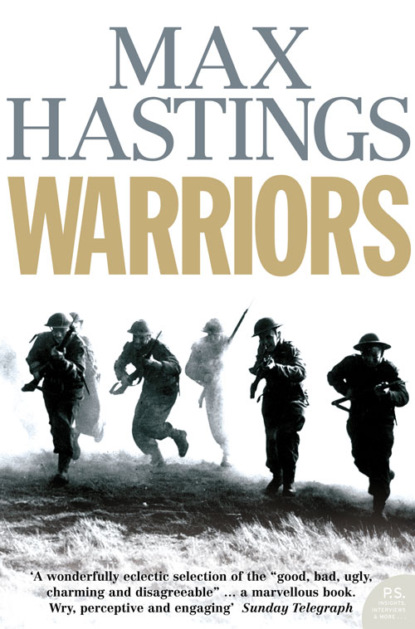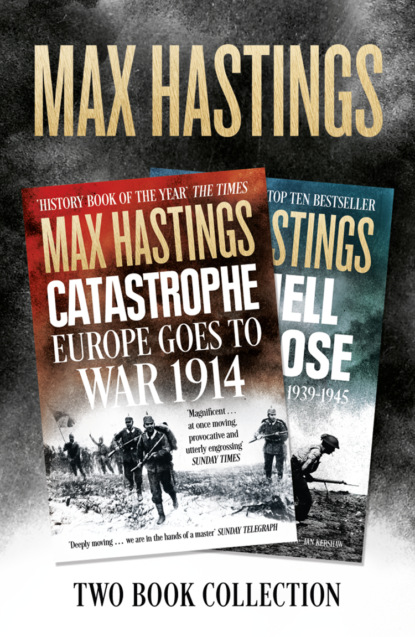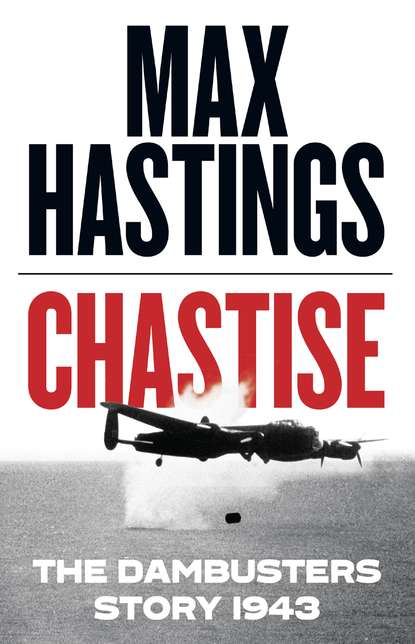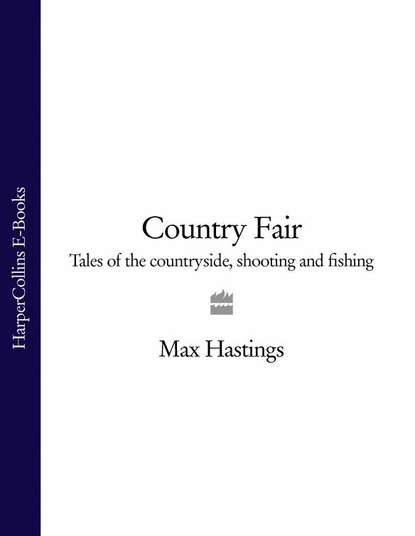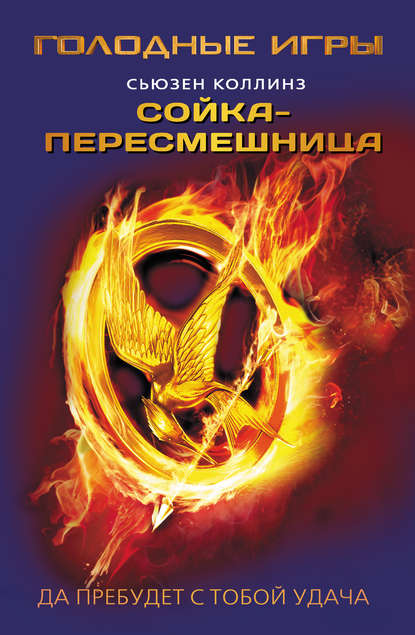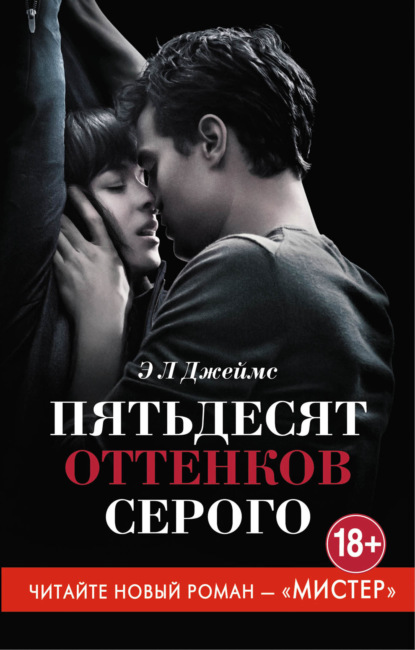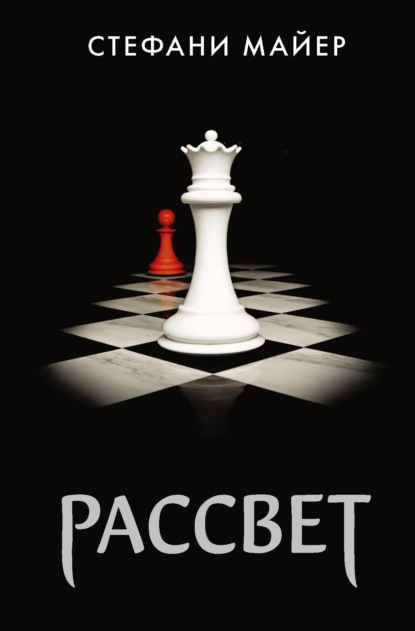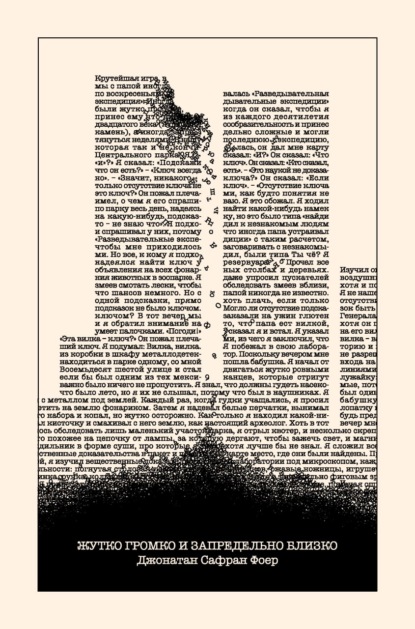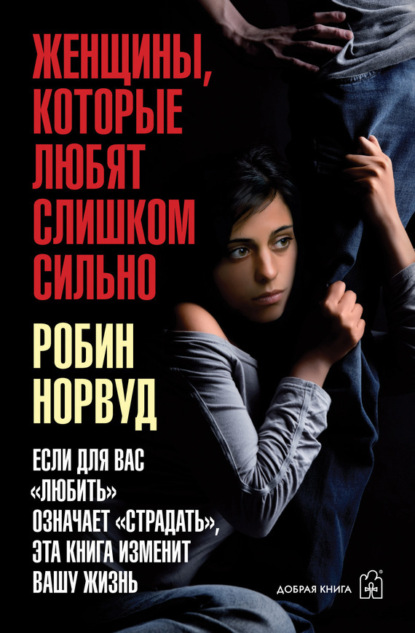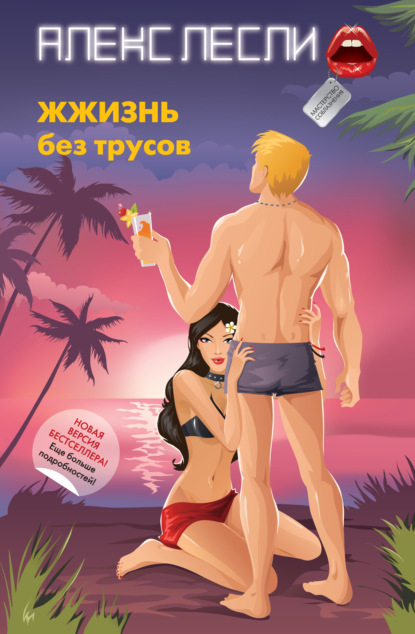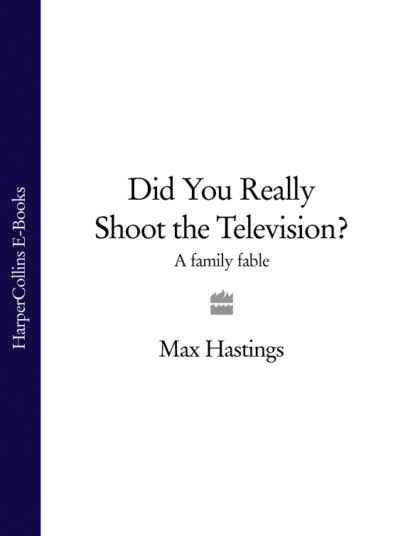
Текст
отзывы: 0 | рейтинг: 0
Did You Really Shoot the Television?: A Family Fable
Жанр:
Биографии и мемуары
Язык:
Английский
Тип:
Текст
Год издания:
2018
Полная версия
Полная версия
Did You Really Shoot the Television?: A Family Fable
Sir Max Hastings
Max Hastings's account of his family's tumultuous 20th century experiences embraces the worlds of fashion and newspapers, theatre and TV, pioneering in Africa and even – his father's most exotic 1960 stunt – being cast away on a desert island in the Indian Ocean.The author is the son of broadcaster and adventurer Macdonald Hastings and journalist and gardening writer Anne Scott-James. One of his grandfathers was a literary editor while the other wrote plays and essays, and penned an enchanting memoir of his own Victorian childhood. His great-uncle was an African hunter who wrote poetry and became one of Max's heroes. The author tells a richly picaresque story, featuring guest appearances by a host of celebrities from Thomas Hardy and Joseph Conrad to John Betjeman and Osbert Lancaster, who became Anne Scott-James's third husband. 'All families are dysfunctional', Anne asserted impenitently to Max, but the Hastings’ managed to be more dysfunctional than most. His father roamed the world for newspapers and as a presenter for BBC TV's legendary Tonight programme, while his mother edited ‘Harper's Bazaar’, became a famous columnist and wrote best-selling gardening books.Here, the author brings together this remarkable cast of forebears, 'a tribe of eccentrics', as he himself characterises them. By turns moving, dramatic and comic, the book portrays Max's own childhood fraught with rows and explosions, in which the sudden death of a television set was only one highlight. His story will make a lot of people laugh and perhaps a few cry. It helps to explain why Max Hastings, whose family has produced more than eighty books over three generations, felt bound to follow their path of high adventure and popular journalism.
Did You Really Shoot the Television?
A Family Fable
Max Hastings
For Charlotte, Harry and Calypso: the next generation
Table of Contents
Cover Page (#ua1f0d02d-0a5d-528c-83b4-1c1024386ae0)
Title Page (#ud8616199-88cc-5828-8cb1-3adaaa762e95)
Dedication (#u7e3d7cb8-64d9-54e0-a67f-8b10f53f76e7)
Introduction (#u80fc7e82-d96f-58ce-91ac-9be90d6bf739)
One The Tribe (#u9b40204c-ecb9-5162-b02a-c4fb5334c31d)
Two Lewis and Basil (#u5ebf76d2-070f-5fe7-ba7a-6933ad037731)
Three Stagestruck (#ua8fabd54-170d-5ca4-9ed4-261a4d7b3e31)
Four Mac (#ucb8649e5-45e5-57db-93a4-1b1c7c366c01)
Five Anne (#u6bf3ce65-a993-5a99-a81a-99c7cf750a9c)
Six War Work (#u7780682f-fdfb-5ea0-918d-05db53600861)
Seven The Odd Couple (#uc5e90707-98f2-5c02-a63e-f92080f60a6e)
Eight Success Stories (#u861b2310-b4cf-504e-b08a-4d0b25b455f4)
Nine Rural Idylls (#ud73ff169-54f8-573d-8bd0-152095938438)
Ten Bush Fever (#u39fac405-bfa4-52e3-a5aa-af2a7bf1a794)
Eleven Mac on the Telly (#ue37498d9-3068-51d2-9d8e-df8f752faae3)
Twelve Castaway (#u3de39a1c-a856-5d2f-a1f2-10717ae84944)
Thirteen Late Editions (#u800c0c23-3934-5cf9-bdad-441284134cff)
Fourteen Headstones (#u74c7aafb-0fe7-5461-b394-09408fba07a8)
Appendix (#u1089b3eb-2796-51a9-b3f7-87f2ef1145b6)
Index (#u7a15b1a0-1335-5b21-b570-6f1b116c5b20)
By the Same Author (#u055f9b3f-6293-5217-ae4e-d2bc5848e094)
Copyright (#u2c4a1afe-9ed8-5e74-8e79-36c0d80fde53)
About the Publisher (#udc13c55e-9364-5ba0-9379-b7769669e94b)
Introduction (#ulink_0006ac77-0b8b-5d17-b3c3-4c1bed53e090)
I am the least significant character in the story which follows. But it was an enquiry about the fate of the TV set in the London family flat of my childhood which prompted me to embark upon it. Throughout the long life of my mother, the journalist and gardening writer Anne Scott-James, I wrote little about our tumultuous family experiences. In 1986, featured as the castaway on the BBC’s Desert Island Discs, I dodged tricky questions about parental relations. I incline to my mother’s view, that ‘All families are dysfunctional.’ However, when she enjoyed the same experience on DID in 2003 – and of course, most of us find it pleasing to talk about ourselves in such a context – at the age of ninety, she was much less inhibited. To the audience’s delight and my toe-curling embarrassment, she regaled Sue Lawley with tales of our old squabbles, and of my admittedly pretty frightful childhood behaviour. For weeks afterwards, people came up to me in filling stations and other unlikely places, demanding: ‘’Ere – did you really shoot the television?’ We shall address that question in due course, but I want to make plain immediately that it was not a big set.
The latter part of the book evokes personal memories of my parents and childhood, partial and fragmentary as all such yarns are. Until we reach the 1950s, however, I have sought to sketch some of the doings of the Hastingses and Scott-Jameses who came before me. Their experiences, journalistic and adventurous, fed my own aspirations. The tale is not founded upon delusions that our family has been important. The bylines of Macdonald Hastings and Anne Scott-James, which were modestly celebrated in the mid-twentieth-century media, are quite unknown to a younger generation, as is the way of the world. Most of us have been ‘nearly’ people. Some of the clan, indeed, barely kept their heads above water. We have spasmodically proved capable of making a little money, but never of hanging on to it. Though our collective experiences all over the world in the past century of war and peace have been varied and picaresque, other English middle-class families can boast similar excitements. What is unusual, I think, is that our lot wrote it down. Even the least materially successful were highly literate. They committed to paper what happened to them at school and at home, in fashion studios and newspaper offices, on battlefields, in the African bush, and even on a desert island.
The story is based upon published and unpublished autobiographical material assembled by its principal characters. Beyond the miscellany of family papers which I possess back to the 1850s, my grandfather Basil wrote a book entitled Memoirs of a Child; his brother, great-uncle Lewis, published an anecdotal autobiography, Dragons are Extra; Lewis’s son, cousin Stephen, likewise wrote The Drums of Memory. My father, Macdonald Hastings, published Jesuit Child and Gamebook, together with accounts of his most memorable journalistic exploits – The Search for the Little Yellow Men and After You, Robinson Crusoe. My mother wrote Sketches from a Life and In the Mink, which professed to be a novel, but was an almost undisguised memoir of her time in the fashion business. Her father, Rolfe Scott-James, published mostly literary criticism, but left a manuscript account of his relationships with some literary idols of his day. My stepfather, Osbert Lancaster, wrote a memoir of his childhood, All Done from Memory.
In addition, they produced millions of words of journalism, more than a few about themselves. Wherever possible here, I have allowed them to tell the tale in their own words. Such an approach is not a formula for objectivity. Leslie Stephen, creator of the Dictionary of National Biography, observed that ‘No good story is ever quite true.’ But this is a book designed to divert and entertain, rather than to enrich the annals of the times.
A very ordinary family’s doings attain interest when its domestic details are preserved from a century ago. There are lots of gaps – things which I have been unable to discover. For knowledge of feuds and scandals, for instance, I am dependent upon anecdotage rather than documentary evidence. Tolstoy famously observed that all happy families are alike, while every unhappy family is unhappy in its own way. That line prompts me to recall a sally of my mother’s, one day as we were lunching together, when she was a mere adolescent of eighty. ‘You still haven’t forgiven me for your childhood, have you?’ she said, with her customary abruptness. I replied that she was quite wrong about that. One should judge things by how they turn out. Most of my life has been uncommonly fulfilled. I probably inherited from her whatever talents I possess. I added, however: ‘If you try a different question – did I enjoy my childhood? – the answer is “no”. When I was three or four, I doubt that you and I would have recognised each other in an identity parade.’ Mumsy paused for a moment, brooding. Then she said: ‘Whoever did you hear of who did anything with their lives who had’ – the next bit in tones of withering scorn – ‘a happy childhood?’ She claimed that Frank Muir, her fellow panellist on the 1960s and ’seventies BBC radio quiz game My Word, was the only clever man she ever met whose domestic life appeared satisfactory from the cradle to the grave.
There may be something in what she said, though I doubt that its moral would deserve a place in a manual on child-rearing. On my side, there seems merit in writing a book like this at sixty-three, rather than at thirty-three or forty-three. Whatever follies Mummy and Daddy committed, I have had time to learn, as we all do, that the only privilege of children is to make different mistakes from those of our forebears. I have so often failed as parent, husband and everything else that I now understand, as few of us do before middle age, how hard it is to get things right.
Some details: in the text below, I refer to each family member by name rather than relationship. Thus, my parents are ‘Mac’ and ‘Anne’, rather than ‘Father’ and ‘Mother’, except when I write explicitly about our dealings with each other. I have mentioned money a good deal, because when I read books about other people’s lives I like to be told how they did, or did not, make ends meet. Trollope shocked his contemporaries by itemising in print the earnings from each of his novels, but posterity is grateful. I have said less about my sister Clare than her part in the family experience deserves, because it would be wrong to associate her with my perspective and judgements. Six years younger than me, a big gap in childhood, she saw things in her own way, invariably more temperate and less jaundiced than my own. Mac, Anne and I alike owed her more apologies than ever got expressed, for many and various injustices which we inflicted upon her. Likewise my half-sister Harriet Hastings, born in 1964, near the conclusion of the story told in these pages, has plenty to forgive us all for. I am happy here to make my own act of contrition to both siblings.
I have not written much about my own schooldays, which were disagreeable in the usual banal way. This is the story of a family, not about the miseries of English boarding education for boys who are no good at games. I have described in earlier memoirs – Going to the Wars and Editor – my experiences first as a foreign correspondent, later running the Daily Telegraph for a decade. Did You Really Shoot the Television? is a prequel. I have written it in fits and starts, and held back from publication until my mother, last of her generation of Hastingses and Scott-Jameses, was dead. My admiration for her will become plain, but she never appreciated my jokes.
I grew up with an exaggerated pride in my family’s journalistic and literary heritage. I only realised in adulthood how modest this is by the standards of serious writers. At the outset, I was obsessed with sustaining it. At seventeen, I had read almost all the forty-odd books which the previous two generations of Hastingses and Scott-Jameses had then published. Like most children, I passed through a phase of awe towards my parents, into one of scepticism which persisted for several decades. Today, I can enjoy the memory of my own mistakes alongside theirs, and draw pleasure from the fact we alike experienced adventure, editorship and authorship. A condescending critic might say that we scrambled on the lower slopes of literary endeavour. I prefer to think of us all as reporters, sharing many of the same thrills and spills – three generations in turn discovering that you are as good as your last story, until finally, as Tourneur observes, ‘That which would seem treason in our lives is laughter when we are dead.’
Max Hastings
Hungerford, Berkshire
ONE The Tribe (#ulink_871ba309-0c55-5eaf-b934-5e4ea569050c)
Lots of families possess delusions of grandeur about their ancestry, and ours is no exception. Tess Durbeyfield’s feckless peasant father liked to indulge a fantasy about his descent from the grand Dorset family of d’Urberville. Some modern Hastingses of our branch of the name cherished a notion that they should be earls. Both my father and his cousin Stephen were at pains to assure me that if there was any justice in the world, the Huntingdon peerage would rest in our hands, rather than in those of the upstart Hastingses who possess it. They wasted several hundred pounds, significant money fifty years ago, on a joint attempt to prove as much, with the aid of professional genealogists. Steve, a veteran Tory MP and Master of Foxhounds, married en secondes noces into the grand Fitzwilliam family. In old age, he became rather cross when I suggested that in truth – and as the evidence shows – our paternal ancestors were a pretty humble lot. Though some important people in British history have been called Hastings, it is impossible to trace connections between them and us. Walter Pater, asked if he was related to the French painter of the same surname, answered: ‘I hope so; I believe so; I always say so.’ This is charming, but silly.
I have no idea what our family did with itself before the nineteenth century, when we emerged as small-town Northern Irish Catholics, in an era from which few records of such people survive. Since Hastings is not an Irish name, I would surmise that some ancestor crossed from England in the sixteenth or seventeenth century, perhaps as a soldier. The first of my forebears of whom I know anything is James, who lived at Brooke-borough, Co. Fermanagh, in the early 1800s. The most notable characteristic of the Brookeborough Hastingses was that they were not merely Papists, in that fiercely Protestant society, but devout ones. God played a dominant part in their lives throughout the ensuing century. In the bitter years before Catholic Emancipation, when the 1798 uprising was a recent memory, several of them emigrated to the United States, where two became Jesuits.
My own great-great grandfather, Hugh, born in 1810, briefly attended Queen’s University in Belfast, moved to England in 1827, married a Wiltshire girl named Ann Sweatman, and taught mathematics and classics at various schools. He worked for a time in the 1850s as a jobbing writer at Knight’s Agency in Fleet Street, producing essays and articles on any subject required, including the geography of Fermanagh and the topography of London. This was the family’s first association with the Grub Street world which would loom large in our lives in the following century. In 1857 Hugh emigrated to America, where he taught at a school in Harper’s Ferry, Virginia. He was living there with his five children, among them my great-grandfather Edward, born in 1850, when John Brown staged his famous raid, which helped to precipitate the US Civil War. I still possess my great-great aunt’s narrative of the drama.
Conflict brought only grief to the Hastingses. Hugh was too old to fight, even had he wished to. His enthusiasm for the Southern cause prompted him to invest his tiny savings in Confederate bonds, an early instance of the family’s hereditary improvidence. When he decided to return to England, he was obliged to borrow the passage money from a friend. Late in 1862, broke and disappointed, Hugh Hastings reached London once more with his family. He spent the last years of his life teaching at University College School.
Somehow, despite their modest income, there was just enough cash to send Edward to Stonyhurst, the grim Jesuit public school in Lancashire ‘for the education of English Catholic gentlemen’s sons’. In 1867, the boy had just completed five Spartan years when his father suffered a stroke and died. Family hopes that Edward might study science at London University were dashed. He had to make a living. He was articled to a solicitor at a salary of thirteen guineas a quarter, and remained a solicitor’s clerk, albeit later a valued and well-paid one, for the rest of his life. Fortunately, a family friend provided him with an allowance of £75 a year to supplement his earnings.
In 1877, Edward married Elizabeth Macdonald, a Scottish teacher working in Carlisle – heaven knows where they met. The couple produced eleven children. The family’s income never much exceeded £400, yet on this they managed to occupy a relatively large and comfortable London house south of the river – 29 Trinity Square, Borough – and to send all the boys to Stonyhurst. Edward and his family inhabited the genteel lower-middle-class world familiar to us through The Diary of a Nobody. His writings and experiences echo those of Mr Pooter. Yet the family correspondence also reveals Edward, like his father, as a literate and devout Pooter, fluent in Latin and Greek. His religion was the core of his life.
Basil Macdonald Hastings, Edward’s second son and my grandfather, was to become the first of the family who made a living from the pen. His boyhood in that big Victorian family – ‘the Tribe’, as they called themselves – is minutely recorded, because many years later he published a charming account of it, Memoirs of a Child. He said nothing of his father’s spiritual torments and worldly disappointments. Basil merely rejoiced in an early life full of incident, in which a modest income somehow sufficed to provide fun as well as education. I first read his narrative when I was twelve, and it inspired me with a sense of heredity which is usually the privilege of grander dynasties.
Probably because Edward’s financial circumstances made close budgeting essential, as well as because he possessed a meticulous temperament, he commissioned custom-printed account books. In these, he recorded every detail of expenditure on behalf of each member of the ever-expanding Tribe. Ethel, his first child, arrived in 1879; Lewis, the eldest son – named for Leyson Lewis, the family benefactor who provided Edward with his vital allowance – in the following year; my grandfather Basil in 1881. Thereafter babies, all born at home, followed in a profusion that must have gladdened the heart of the family priest. Like Dickens’s much-put-upon clerk, ‘the Cherub’ Reginald Wilfer of Our Mutual Friend, Edward had a ‘limited income and an unlimited family’. The account books eventually contained separate pages for:
Hastings Mrs E
Hastings Ethelreda Agatha Gordon
Hastings Lewis Macdonald
Hastings Basil Macdonald
Hastings Gladys Mary Fraser
Hastings Beryl
Angela Macdonald
Hastings Claude Hugh
Hastings Aubrey Joseph
Sir Max Hastings
Max Hastings's account of his family's tumultuous 20th century experiences embraces the worlds of fashion and newspapers, theatre and TV, pioneering in Africa and even – his father's most exotic 1960 stunt – being cast away on a desert island in the Indian Ocean.The author is the son of broadcaster and adventurer Macdonald Hastings and journalist and gardening writer Anne Scott-James. One of his grandfathers was a literary editor while the other wrote plays and essays, and penned an enchanting memoir of his own Victorian childhood. His great-uncle was an African hunter who wrote poetry and became one of Max's heroes. The author tells a richly picaresque story, featuring guest appearances by a host of celebrities from Thomas Hardy and Joseph Conrad to John Betjeman and Osbert Lancaster, who became Anne Scott-James's third husband. 'All families are dysfunctional', Anne asserted impenitently to Max, but the Hastings’ managed to be more dysfunctional than most. His father roamed the world for newspapers and as a presenter for BBC TV's legendary Tonight programme, while his mother edited ‘Harper's Bazaar’, became a famous columnist and wrote best-selling gardening books.Here, the author brings together this remarkable cast of forebears, 'a tribe of eccentrics', as he himself characterises them. By turns moving, dramatic and comic, the book portrays Max's own childhood fraught with rows and explosions, in which the sudden death of a television set was only one highlight. His story will make a lot of people laugh and perhaps a few cry. It helps to explain why Max Hastings, whose family has produced more than eighty books over three generations, felt bound to follow their path of high adventure and popular journalism.
Did You Really Shoot the Television?
A Family Fable
Max Hastings
For Charlotte, Harry and Calypso: the next generation
Table of Contents
Cover Page (#ua1f0d02d-0a5d-528c-83b4-1c1024386ae0)
Title Page (#ud8616199-88cc-5828-8cb1-3adaaa762e95)
Dedication (#u7e3d7cb8-64d9-54e0-a67f-8b10f53f76e7)
Introduction (#u80fc7e82-d96f-58ce-91ac-9be90d6bf739)
One The Tribe (#u9b40204c-ecb9-5162-b02a-c4fb5334c31d)
Two Lewis and Basil (#u5ebf76d2-070f-5fe7-ba7a-6933ad037731)
Three Stagestruck (#ua8fabd54-170d-5ca4-9ed4-261a4d7b3e31)
Four Mac (#ucb8649e5-45e5-57db-93a4-1b1c7c366c01)
Five Anne (#u6bf3ce65-a993-5a99-a81a-99c7cf750a9c)
Six War Work (#u7780682f-fdfb-5ea0-918d-05db53600861)
Seven The Odd Couple (#uc5e90707-98f2-5c02-a63e-f92080f60a6e)
Eight Success Stories (#u861b2310-b4cf-504e-b08a-4d0b25b455f4)
Nine Rural Idylls (#ud73ff169-54f8-573d-8bd0-152095938438)
Ten Bush Fever (#u39fac405-bfa4-52e3-a5aa-af2a7bf1a794)
Eleven Mac on the Telly (#ue37498d9-3068-51d2-9d8e-df8f752faae3)
Twelve Castaway (#u3de39a1c-a856-5d2f-a1f2-10717ae84944)
Thirteen Late Editions (#u800c0c23-3934-5cf9-bdad-441284134cff)
Fourteen Headstones (#u74c7aafb-0fe7-5461-b394-09408fba07a8)
Appendix (#u1089b3eb-2796-51a9-b3f7-87f2ef1145b6)
Index (#u7a15b1a0-1335-5b21-b570-6f1b116c5b20)
By the Same Author (#u055f9b3f-6293-5217-ae4e-d2bc5848e094)
Copyright (#u2c4a1afe-9ed8-5e74-8e79-36c0d80fde53)
About the Publisher (#udc13c55e-9364-5ba0-9379-b7769669e94b)
Introduction (#ulink_0006ac77-0b8b-5d17-b3c3-4c1bed53e090)
I am the least significant character in the story which follows. But it was an enquiry about the fate of the TV set in the London family flat of my childhood which prompted me to embark upon it. Throughout the long life of my mother, the journalist and gardening writer Anne Scott-James, I wrote little about our tumultuous family experiences. In 1986, featured as the castaway on the BBC’s Desert Island Discs, I dodged tricky questions about parental relations. I incline to my mother’s view, that ‘All families are dysfunctional.’ However, when she enjoyed the same experience on DID in 2003 – and of course, most of us find it pleasing to talk about ourselves in such a context – at the age of ninety, she was much less inhibited. To the audience’s delight and my toe-curling embarrassment, she regaled Sue Lawley with tales of our old squabbles, and of my admittedly pretty frightful childhood behaviour. For weeks afterwards, people came up to me in filling stations and other unlikely places, demanding: ‘’Ere – did you really shoot the television?’ We shall address that question in due course, but I want to make plain immediately that it was not a big set.
The latter part of the book evokes personal memories of my parents and childhood, partial and fragmentary as all such yarns are. Until we reach the 1950s, however, I have sought to sketch some of the doings of the Hastingses and Scott-Jameses who came before me. Their experiences, journalistic and adventurous, fed my own aspirations. The tale is not founded upon delusions that our family has been important. The bylines of Macdonald Hastings and Anne Scott-James, which were modestly celebrated in the mid-twentieth-century media, are quite unknown to a younger generation, as is the way of the world. Most of us have been ‘nearly’ people. Some of the clan, indeed, barely kept their heads above water. We have spasmodically proved capable of making a little money, but never of hanging on to it. Though our collective experiences all over the world in the past century of war and peace have been varied and picaresque, other English middle-class families can boast similar excitements. What is unusual, I think, is that our lot wrote it down. Even the least materially successful were highly literate. They committed to paper what happened to them at school and at home, in fashion studios and newspaper offices, on battlefields, in the African bush, and even on a desert island.
The story is based upon published and unpublished autobiographical material assembled by its principal characters. Beyond the miscellany of family papers which I possess back to the 1850s, my grandfather Basil wrote a book entitled Memoirs of a Child; his brother, great-uncle Lewis, published an anecdotal autobiography, Dragons are Extra; Lewis’s son, cousin Stephen, likewise wrote The Drums of Memory. My father, Macdonald Hastings, published Jesuit Child and Gamebook, together with accounts of his most memorable journalistic exploits – The Search for the Little Yellow Men and After You, Robinson Crusoe. My mother wrote Sketches from a Life and In the Mink, which professed to be a novel, but was an almost undisguised memoir of her time in the fashion business. Her father, Rolfe Scott-James, published mostly literary criticism, but left a manuscript account of his relationships with some literary idols of his day. My stepfather, Osbert Lancaster, wrote a memoir of his childhood, All Done from Memory.
In addition, they produced millions of words of journalism, more than a few about themselves. Wherever possible here, I have allowed them to tell the tale in their own words. Such an approach is not a formula for objectivity. Leslie Stephen, creator of the Dictionary of National Biography, observed that ‘No good story is ever quite true.’ But this is a book designed to divert and entertain, rather than to enrich the annals of the times.
A very ordinary family’s doings attain interest when its domestic details are preserved from a century ago. There are lots of gaps – things which I have been unable to discover. For knowledge of feuds and scandals, for instance, I am dependent upon anecdotage rather than documentary evidence. Tolstoy famously observed that all happy families are alike, while every unhappy family is unhappy in its own way. That line prompts me to recall a sally of my mother’s, one day as we were lunching together, when she was a mere adolescent of eighty. ‘You still haven’t forgiven me for your childhood, have you?’ she said, with her customary abruptness. I replied that she was quite wrong about that. One should judge things by how they turn out. Most of my life has been uncommonly fulfilled. I probably inherited from her whatever talents I possess. I added, however: ‘If you try a different question – did I enjoy my childhood? – the answer is “no”. When I was three or four, I doubt that you and I would have recognised each other in an identity parade.’ Mumsy paused for a moment, brooding. Then she said: ‘Whoever did you hear of who did anything with their lives who had’ – the next bit in tones of withering scorn – ‘a happy childhood?’ She claimed that Frank Muir, her fellow panellist on the 1960s and ’seventies BBC radio quiz game My Word, was the only clever man she ever met whose domestic life appeared satisfactory from the cradle to the grave.
There may be something in what she said, though I doubt that its moral would deserve a place in a manual on child-rearing. On my side, there seems merit in writing a book like this at sixty-three, rather than at thirty-three or forty-three. Whatever follies Mummy and Daddy committed, I have had time to learn, as we all do, that the only privilege of children is to make different mistakes from those of our forebears. I have so often failed as parent, husband and everything else that I now understand, as few of us do before middle age, how hard it is to get things right.
Some details: in the text below, I refer to each family member by name rather than relationship. Thus, my parents are ‘Mac’ and ‘Anne’, rather than ‘Father’ and ‘Mother’, except when I write explicitly about our dealings with each other. I have mentioned money a good deal, because when I read books about other people’s lives I like to be told how they did, or did not, make ends meet. Trollope shocked his contemporaries by itemising in print the earnings from each of his novels, but posterity is grateful. I have said less about my sister Clare than her part in the family experience deserves, because it would be wrong to associate her with my perspective and judgements. Six years younger than me, a big gap in childhood, she saw things in her own way, invariably more temperate and less jaundiced than my own. Mac, Anne and I alike owed her more apologies than ever got expressed, for many and various injustices which we inflicted upon her. Likewise my half-sister Harriet Hastings, born in 1964, near the conclusion of the story told in these pages, has plenty to forgive us all for. I am happy here to make my own act of contrition to both siblings.
I have not written much about my own schooldays, which were disagreeable in the usual banal way. This is the story of a family, not about the miseries of English boarding education for boys who are no good at games. I have described in earlier memoirs – Going to the Wars and Editor – my experiences first as a foreign correspondent, later running the Daily Telegraph for a decade. Did You Really Shoot the Television? is a prequel. I have written it in fits and starts, and held back from publication until my mother, last of her generation of Hastingses and Scott-Jameses, was dead. My admiration for her will become plain, but she never appreciated my jokes.
I grew up with an exaggerated pride in my family’s journalistic and literary heritage. I only realised in adulthood how modest this is by the standards of serious writers. At the outset, I was obsessed with sustaining it. At seventeen, I had read almost all the forty-odd books which the previous two generations of Hastingses and Scott-Jameses had then published. Like most children, I passed through a phase of awe towards my parents, into one of scepticism which persisted for several decades. Today, I can enjoy the memory of my own mistakes alongside theirs, and draw pleasure from the fact we alike experienced adventure, editorship and authorship. A condescending critic might say that we scrambled on the lower slopes of literary endeavour. I prefer to think of us all as reporters, sharing many of the same thrills and spills – three generations in turn discovering that you are as good as your last story, until finally, as Tourneur observes, ‘That which would seem treason in our lives is laughter when we are dead.’
Max Hastings
Hungerford, Berkshire
ONE The Tribe (#ulink_871ba309-0c55-5eaf-b934-5e4ea569050c)
Lots of families possess delusions of grandeur about their ancestry, and ours is no exception. Tess Durbeyfield’s feckless peasant father liked to indulge a fantasy about his descent from the grand Dorset family of d’Urberville. Some modern Hastingses of our branch of the name cherished a notion that they should be earls. Both my father and his cousin Stephen were at pains to assure me that if there was any justice in the world, the Huntingdon peerage would rest in our hands, rather than in those of the upstart Hastingses who possess it. They wasted several hundred pounds, significant money fifty years ago, on a joint attempt to prove as much, with the aid of professional genealogists. Steve, a veteran Tory MP and Master of Foxhounds, married en secondes noces into the grand Fitzwilliam family. In old age, he became rather cross when I suggested that in truth – and as the evidence shows – our paternal ancestors were a pretty humble lot. Though some important people in British history have been called Hastings, it is impossible to trace connections between them and us. Walter Pater, asked if he was related to the French painter of the same surname, answered: ‘I hope so; I believe so; I always say so.’ This is charming, but silly.
I have no idea what our family did with itself before the nineteenth century, when we emerged as small-town Northern Irish Catholics, in an era from which few records of such people survive. Since Hastings is not an Irish name, I would surmise that some ancestor crossed from England in the sixteenth or seventeenth century, perhaps as a soldier. The first of my forebears of whom I know anything is James, who lived at Brooke-borough, Co. Fermanagh, in the early 1800s. The most notable characteristic of the Brookeborough Hastingses was that they were not merely Papists, in that fiercely Protestant society, but devout ones. God played a dominant part in their lives throughout the ensuing century. In the bitter years before Catholic Emancipation, when the 1798 uprising was a recent memory, several of them emigrated to the United States, where two became Jesuits.
My own great-great grandfather, Hugh, born in 1810, briefly attended Queen’s University in Belfast, moved to England in 1827, married a Wiltshire girl named Ann Sweatman, and taught mathematics and classics at various schools. He worked for a time in the 1850s as a jobbing writer at Knight’s Agency in Fleet Street, producing essays and articles on any subject required, including the geography of Fermanagh and the topography of London. This was the family’s first association with the Grub Street world which would loom large in our lives in the following century. In 1857 Hugh emigrated to America, where he taught at a school in Harper’s Ferry, Virginia. He was living there with his five children, among them my great-grandfather Edward, born in 1850, when John Brown staged his famous raid, which helped to precipitate the US Civil War. I still possess my great-great aunt’s narrative of the drama.
Conflict brought only grief to the Hastingses. Hugh was too old to fight, even had he wished to. His enthusiasm for the Southern cause prompted him to invest his tiny savings in Confederate bonds, an early instance of the family’s hereditary improvidence. When he decided to return to England, he was obliged to borrow the passage money from a friend. Late in 1862, broke and disappointed, Hugh Hastings reached London once more with his family. He spent the last years of his life teaching at University College School.
Somehow, despite their modest income, there was just enough cash to send Edward to Stonyhurst, the grim Jesuit public school in Lancashire ‘for the education of English Catholic gentlemen’s sons’. In 1867, the boy had just completed five Spartan years when his father suffered a stroke and died. Family hopes that Edward might study science at London University were dashed. He had to make a living. He was articled to a solicitor at a salary of thirteen guineas a quarter, and remained a solicitor’s clerk, albeit later a valued and well-paid one, for the rest of his life. Fortunately, a family friend provided him with an allowance of £75 a year to supplement his earnings.
In 1877, Edward married Elizabeth Macdonald, a Scottish teacher working in Carlisle – heaven knows where they met. The couple produced eleven children. The family’s income never much exceeded £400, yet on this they managed to occupy a relatively large and comfortable London house south of the river – 29 Trinity Square, Borough – and to send all the boys to Stonyhurst. Edward and his family inhabited the genteel lower-middle-class world familiar to us through The Diary of a Nobody. His writings and experiences echo those of Mr Pooter. Yet the family correspondence also reveals Edward, like his father, as a literate and devout Pooter, fluent in Latin and Greek. His religion was the core of his life.
Basil Macdonald Hastings, Edward’s second son and my grandfather, was to become the first of the family who made a living from the pen. His boyhood in that big Victorian family – ‘the Tribe’, as they called themselves – is minutely recorded, because many years later he published a charming account of it, Memoirs of a Child. He said nothing of his father’s spiritual torments and worldly disappointments. Basil merely rejoiced in an early life full of incident, in which a modest income somehow sufficed to provide fun as well as education. I first read his narrative when I was twelve, and it inspired me with a sense of heredity which is usually the privilege of grander dynasties.
Probably because Edward’s financial circumstances made close budgeting essential, as well as because he possessed a meticulous temperament, he commissioned custom-printed account books. In these, he recorded every detail of expenditure on behalf of each member of the ever-expanding Tribe. Ethel, his first child, arrived in 1879; Lewis, the eldest son – named for Leyson Lewis, the family benefactor who provided Edward with his vital allowance – in the following year; my grandfather Basil in 1881. Thereafter babies, all born at home, followed in a profusion that must have gladdened the heart of the family priest. Like Dickens’s much-put-upon clerk, ‘the Cherub’ Reginald Wilfer of Our Mutual Friend, Edward had a ‘limited income and an unlimited family’. The account books eventually contained separate pages for:
Hastings Mrs E
Hastings Ethelreda Agatha Gordon
Hastings Lewis Macdonald
Hastings Basil Macdonald
Hastings Gladys Mary Fraser
Hastings Beryl
Angela Macdonald
Hastings Claude Hugh
Hastings Aubrey Joseph
Другие книги автора:
Популярные книги





